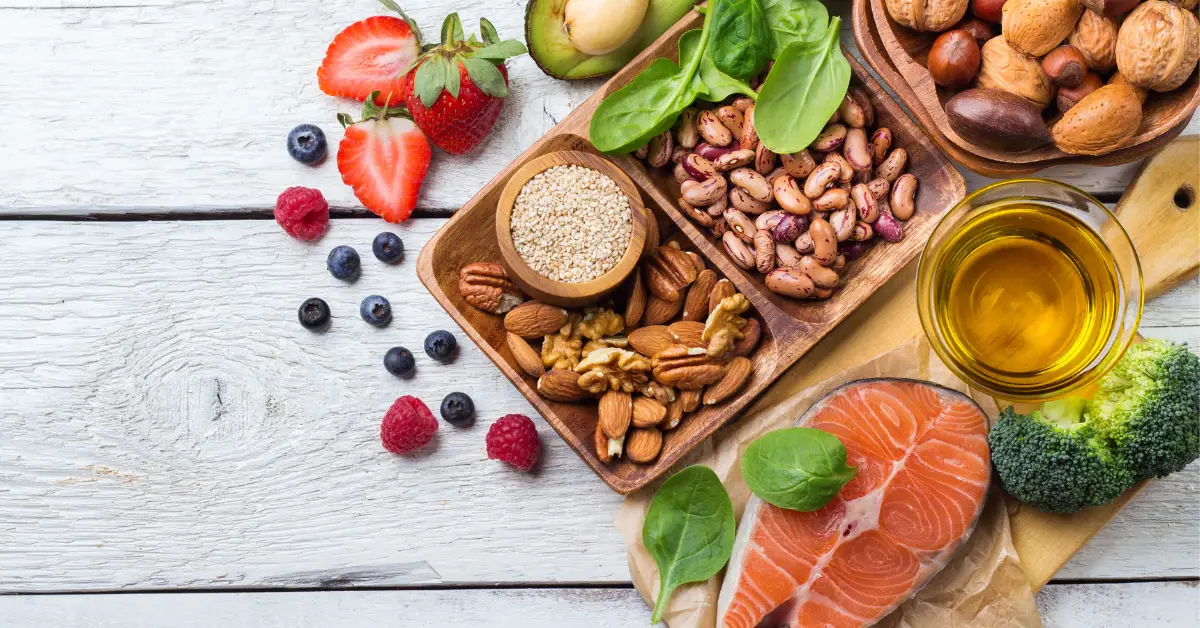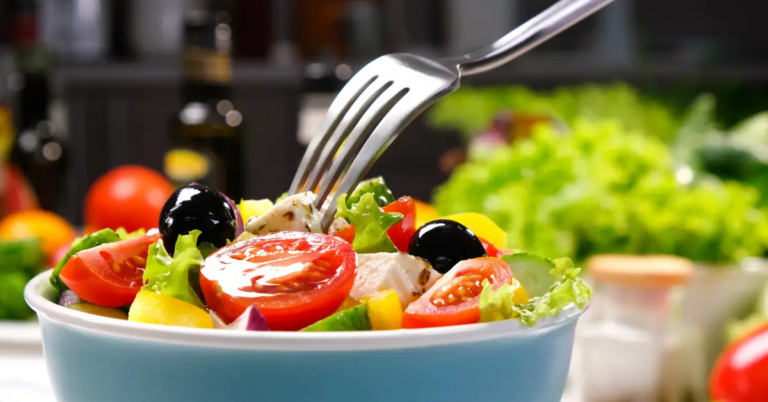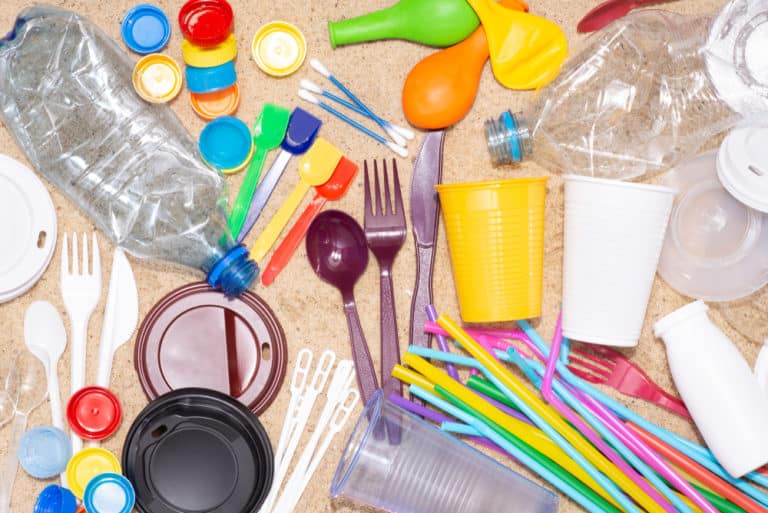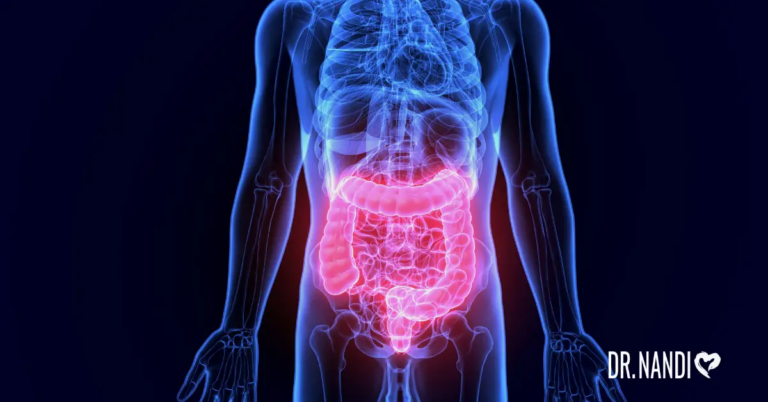Science might be the last thing you think about when you want to lose weight. But research on dietary needs and habits has helped dietitians come up with valuable insights. Based on the evidence, certain diet secrets may bring a positive change to your health and help you achieve your weight loss goals, especially when it comes to belly fat.
Fat storage in the body can vary by location. Subcutaneous fat is found just beneath the skin in the lower body, while visceral fat is stored deeper within the abdominal cavity and surrounds vital organs. A number of factors, such as genetics, diet, exercise, and hormones, can impact where fat is stored in the body. [1]
As we age, the proportion of fat to body weight increases, more so in women than men, and around the midsection. And as our waistlines expand, so do the health risks.
Visceral fat is of particular concern because it plays a role in a wide range of health issues — far more than subcutaneous fat. It has been linked to metabolic problems as well as an increased risk of cardiovascular disease and type 2 diabetes. [1]
Trim Fat by Not Skipping Meals
If you skip a meal, your body goes into starvation mode. As soon as food is delivered to your body, it will store fat to ensure you have enough energy saved up in case there’s a lack of resources.
The second reason skipping meals can affect abdominal fat is that hunger causes people to eat faster. When you rush meals, there’s a higher chance that you will overeat.
Skipping meals and then bingeing affects a host of metabolic measures, which can be attributed to severe spikes and drops in insulin and glucose production. Your body then experiences elevated inflammation and higher activation of genes that promote the storage of fatty molecules — especially in the abdominal area.
Instead of skipping meals, make sure you eat every 3 to 4 hours. This informs your body that there is food available and organizes hunger cues. [2]
Schedule Fasting for Weight Loss
Intermittent fasting is a diet that alternates between fasting and eating on a regular basis. Fasting for a set number of hours per day or eating only one meal a couple of days per week can help burn body fat.
It’s important to remember that skipping a meal and intermittent fasting are two very different things. Skipping meals to deprive yourself or because you’re too busy to eat is different from fasting.
Fasting is designed to get cravings under control and practice mindful eating. Intermittent fasting is on a set schedule — and when you do eat, you’re filling up on foods that will sustain you throughout the fasting periods. Also, you gradually add food back in with intermittent fasting, so it will work well.
Fasting works by prolonging the period when your body burns through the calories consumed during your last meal. After hours without food, your body exhausts its sugar stores and starts burning fat. This is called metabolic switching. [3, 4]
Consider this as a wake-up call to adopt a scheduled change to reduce your belly fat. You will quickly realize that there are resources, diet plans, and even recipes out there that are waiting to tackle your belly fat reduction needs.
Dr. Nandi’s Superfood Cookbook is the ultimate guide to simplifying your diet. With it, you save time by not having to look for healthy recipes.

Eat Better Before Sleep
Eating during times of high activity and allowing your digestive system a period of rest each day may aid in weight regulation. Additionally, reducing caloric intake before bedtime has been linked to long-term weight loss. [5, 6]
To help reduce abdominal fat, you should eat more balanced meals throughout the day and avoid heavy night-time snacks. Try to eat dinner earlier and fast for 14-16 hours until breakfast the next morning.
Avoiding food completely before bedtime can be detrimental to weight loss. Instead of going to bed hungry, you should eat dark, leafy greens during dinner. These vegetables provide fiber, prebiotics, and probiotics that help keep your colon clean.
Soup is another great option. It’s easy for the body to digest, so you won’t be kept up by indigestion.
Cottage cheese is another excellent evening snack. It contains casein protein, a slow-releasing milk protein that keeps hunger at bay throughout the night. Choose your cheese carefully. Other cheeses can cause inflammation, gas, and bloating, which makes it harder to get quality sleep — not to mention the calories. [7]
Burgers, burritos, and pizza are not recommended as these high-fat foods take longer to digest, keeping your body working all night long.
Lastly, getting plenty of sleep is associated with maintaining a healthy weight. Getting enough sleep is beneficial for people who are trying to lose weight.
Track Calories
Calories are essential for bodily functions such as breathing and thinking, as well as daily activities such as walking, talking, and eating.
Tracking calories with apps helps you measure your energy expenditure throughout the day. Aside from monitoring your movement and exercise, these apps also track the energy content of foods and beverages that you consume.
Remember: consuming excess calories can lead to weight gain if you eat more than you burn.
Reviews have found that weight loss programs that include calorie counting lead to an average of around 7 lbs (3.3 kg) more weight loss than those that don’t. [8]
Remember Protein for Muscles
Protein is a source of calories and is essential for building and maintaining muscle mass. As we begin to lose weight, our metabolism and nutrition requirements change.
Some people who are attempting to lose weight do not get enough protein in their diet. This can lead to both fat and muscle loss. Muscle naturally burns more calories throughout the day, which means that more muscle mass equals faster metabolism overall. [9, 10]
Eating More Fiber
Eating more soluble fiber can also help you lose belly fat and prevent belly fat gain. One study linked a 10-gram increase in daily soluble fiber intake to a 3.7% lower risk of gaining belly fat . Several other studies also show that people who eat more soluble fiber have a lower risk of belly fat.
Wrap-Up: The Best Diet
Whether you wish to lose abdominal fat for your health or to go down a dress size, it’s imperative to take the right advice from diet professionals.
Dr. Nandi’s Superfood Cookbook is filled with simple and easy recipes that will remind you that losing belly fat does not have to be boring or hard — it can be fun.
Health Hero Pharmacy also has science-backed and nature-based supplements to help support your overall health and fitness journey.
Once you lose the inches, you’ll feel even better.

My Personal RX:
Eating plenty of protein can boost your metabolism and reduce hunger levels, making it a very effective way to lose weight. Some evidence suggests that protein may be linked with reduced abdominal fat. Here is a quick list of steps to help you to lose that belly fat:
- Diversify Your Protein Intake: Protein plays an essential role in weight management as it can help you feel full and promotes fat burning. It’s not only about quantity, but also the variety of your protein sources. Try including different types of lean protein like fish, lean meats, eggs, beans, and tofu in your diet.
- Consider supplementing your daily protein intake with a protein shake. Try taking my Protein Plus daily.
- Eat More Fiber: Dietary fiber, particularly soluble fiber, can aid in weight loss and reducing belly fat. It works by absorbing water and forming a gel that helps slow down the food as it passes through your digestive system.
- Foods like fruits, vegetables, legumes, and whole grains are excellent sources of fiber. Control Your Sugar Intake: Too much sugar in any form can lead to weight gain, including an increase in belly fat.
- Try to limit your intake of added sugars and avoid sugary beverages. Also, keep an eye on foods that have hidden sugars.
- Incorporate Healthy Fats: Not all fats are bad. Monounsaturated and polyunsaturated fats are known as “good fats” and can help you lose belly fat. These can be found in foods like avocados, olives, nuts and seeds, and fatty fish like salmon.
- Download my free 50 page step-by-step Protocol Guide to optimize your health and wellness.

Sources:
- Abdominal fat and what to do about it – Harvard Health
- Skipping meals linked to abdominal weight gain — ScienceDaily
- Effects of Intermittent Fasting on Health, Aging, and Disease
- Resting energy expenditure in short-term starvation is increased as a result of an increase in serum norepinephrine
- High caloric intake at breakfast vs. dinner differentially influences weight loss of overweight and obese women
- Consuming More of Daily Caloric Intake at Dinner Predisposes to Obesity. A 6-Year Population-Based Prospective Cohort Study – PMC
- Pre-sleep protein in casein supplement or whole-food form has no impact on resting energy expenditure or hunger in women | British Journal of Nutrition | Cambridge Core
- Effect of behavioural techniques and delivery mode on effectiveness of weight management: systematic review, meta-analysis and meta-regression
- role of protein in weight loss and maintenance | The American Journal of Clinical Nutrition | Oxford Academic
- Protein: Sources, deficiency, and requirements


















